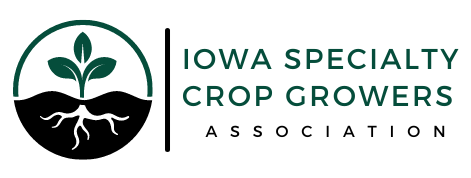Farmers and those employed in the agricultural industry should be mindful of the risks involved with internet security and what they can do to keep themselves and their companies safe.
With so much activity being done online, farmers share the same risks as those employed in other industries – sometimes even more so.
According to Doug Jacobson and Ally Frickel, electrical and computer engineering specialists at Iowa State University, the farming sector is sometimes targeted by cybercriminals because of farming’s critical function – supplying the food and fiber that humans and animals depend upon.
Farmers and the food industry cannot afford to be without their computer system for long, a fact some cybercriminals have used to their advantage.
In an effort to educate farmers and companies, Jacobson and Frickel recently wrote an article for the “Acreage Living Newsletter” – a publication of Iowa State University Extension and Outreach – that covers some of the basic cybersecurity things farmers should be doing.
“These attackers kind of tend to roll from sector to sector and it seems like farming and ag is kind of the new sector,” said Jacobson, who is a university professor of electrical and computer engineering. “They are going after organizations they think have the capability to pay and the business model they feel requires them to pay.”
Individuals can be just as susceptible as large companies, and even though cybersecurity is regularly in the news, it can still become easy to fall prey.
“I think now more than ever it’s a great time to educate people and remind them of the risks that are out there,” said Frickel, a program specialist in electrical and computer engineering. “I think the attackers are getting more creative and in some cases going after those in a more critical, life-or-death enterprise.”
The article covers several mitigation tactics related to email use, malware, authentication passwords, and the importance of creating backups of important files.
Not only do backups help in the event of a cyberattack, but they also help in the event of a natural disaster, or a lost or stolen computer device.
Frickel said she plans to provide additional articles in the future, to help address the unique experiences farmers are having with cybersecurity.
The full article, Farmers and Cybersecurity, is available online. The authors’ key takeaways are listed below:
- No legitimate organization will ever ask for your bank information, social security number or password.
- Use multifactor authentication.
- Consider using cloud-based backup to protect from cyberattacks and natural disasters.
- If you need the help of a tech person, there are many qualified people who can help.
Additional topics in the most recent “Acreage Living Newsletter” include the Master Gardener Winter Series, the Driftless Region Beef Conference and the Small Farm Sustainability Podcast.
To learn more about how cybersecurity relates to farmers, Doug Jacobson can be reached at dougj@iastate.edu; and Ally Frickel is available at africkel@iastate.edu.
Authors:
Doug Jacobson
University Professor
dougj@iastate.edu
